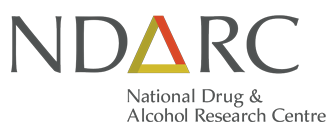
As an NDARC postgraduate research candidate, you will be guided by a supervisory team of world-class researchers who are leaders in their field.
Use the list below to search for potential supervisors or projects to start your research journey. Contact them to discuss your proposed research.

Dr Liam Acheson
Clinical trials of pharmacotherapies for substance use disorders; pharmacological management of acute methamphetamine withdrawal; sleep and substance use; sexual health in the context of substance use; qualitative research on client and participant experiences in treatment settings.

Dr Chrianna Bharat
Epidemiological studies using population-linked data; outcomes of prescribed medicines for opioid dependence; real-world evidence from person-level data linkage; safety and effectiveness of pharmaceutical medicines; post-market surveillance; drug dependence and incarceration exposure; implementation, evaluation, and systematic reviews of research methodologies. PhD awarded for research on data linkage and analytical methods to assess prescribed medicines in opioid-dependent populations.

Dr Simon Clay
Drug use and substance dependence treatment; the relationship between substance use and well-being, with an emphasis on risk and embodiment; sociological approaches to health and public health policy development and implementation. Expertise includes qualitative research methodologies, research ethics, and trauma-informed research practices. Additional research interests: gender studies, contemporary feminisms, social geographies, poststructural theory, and the social construction of health and illness.

Dr Brendan Clifford
Interdisciplinary approaches to advancing health equity and improving access to evidence-based healthcare, with a particular emphasis on alcohol and other drug use.

Dr Ryan Courtney
Smoking cessation; tobacco smoking in low socio-economic status (SES) and disadvantaged populations; socio-economic inequalities and health behaviours and outcomes.

Dr Emily Deans
Gambling, alcohol and other drug sectors.

Scientia Professor Louisa Degenhardt, AO
Epidemiology of illicit drug use (especially cannabis, amphetamines, cocaine and heroin); mortality among people who use drugs; drug use among young people; crime among opioid dependent people; injecting drug use; evidence for interventions to reduce harm among people who use drugs, including opioid agonist treatment; pharmaceutical opioid use, including by people who are living with chronic pain.

Professor Nadine Ezard
Substance use and addiction medicine, harm-reduction public health interventions, models of care and policy for vulnerable populations, stimulant use and development of new interventions, substance use disorders among refugees and displaced populations, translation of research into consumer-focused interventions, addiction medicine clinical services and innovations.

Professor Michael Farrell
Addiction and substance use disorders, treatment and prevention of alcohol and drug dependence, epidemiology of substance use, clinical trials and pharmacotherapies for addiction treatment, public health policies related to substance use, mental health comorbidities in substance use, global health and international approaches to addiction care, and the development of innovative models of care for addiction treatment.

Dr Kathryn Fletcher
Mental health, bipolar disorder, digital health, psychedelic-assisted therapy, ketamine, clinical trials

Dr Catherine Foley
Mental health, substance use, psychological trauma, and co-occurring conditions; development of collaborative, pragmatic models of care designed and driven by people who provide and/or receive health services; integration of research into clinical practice in regional, rural, and remote Australia.

Dr Peter Gates
Cannabis use and related harms; Evidence-base treatments for cannabis use disorder; Medicinal cannabis use; Community level drug and alcohol use and related harms: measurement and community-level prevention programs
.cropimg.width=335.crop=square.jpg)
Scientia Associate Professor Natasa Gisev
Pharmaceutical opioid use and related harms; maximising treatment outcomes for people with opioid dependence, including those with co-morbid mental health disorders; quality use of opioids and psychotropic medicines, including evidence-based prescribing. Projects incorporate pharmacoepidemiological methods and the use of population-level linked administrative health data.

Dr Alys Havard
Drug use during pregnancy and related harms; use, effectiveness and safety of prescription medicines, including among specific populations such as pregnant women and people with cardiovascular disease; smoking cessation; data linkage

Dr Michala Kowalski
Alcohol policy, cannabis policy, evolving drug markets, harm reduction

Dr Christel Macdonald
Court diversion, mental health, drug use and incarceration, psychiatric treatment and legal systems

Dr Nicola Man
Biostatistics and data science; Drug Trends program; cryptomarkets; alcohol pricing and public health; marginalised populations

Associate Professor Amy Peacock
Trends in illicit drug use, harms, and market features; uptake and evaluation of strategies to reduce risk of drug-related harm (e.g., drug checking, drug alerts); alcohol consumption, risk-taking and harm, particularly among young people; and use of pharmaceutical opioids and strategies to reduce extra-medical use and harm. Projects draw on cross-sectional surveys, longitudinal surveys, administrative (including linked) health data (e.g., mortality, hospitalisations), and online data (e.g., darknet marketplace listings).
.cropimg.width=335.crop=square.jpg)
Dr Thomas Santo Jr
Epidemiology, Mental health services & Causes and prevention of crime

Dr Alison Seccull
Women's health; Opioid Agonist Therapy in Primary Care and other Alcohol and Other Drug topics.

Dr Krista Siefried
Addiction medicine, with a focus on methamphetamine use and other emerging drugs; clinical trials; telehealth and digital interventions for people using methamphetamines and emerging substances; HIV medicine.

Dr Rachel Sutherland
Trends in illicit drug use, harms, and market features; implementation, uptake and evaluation of strategies to reduce risk of drug-related harm (e.g., fentanyl test strips, drug alerts); injecting drug use. Projects draw on cross-sectional surveys, longitudinal surveys, and online data (e.g., darknet marketplace listings).

Professor Rebecca McKetin
Stimulant use; methamphetamine use and harms; methamphetamine psychosis; epidemiology; in-direct prevalence estimation; sentinel surveys of substance use; cohort studies; service coverage and barriers to care.

Dr Danielle Tran
Medication use in pregnancy and associated health outcomes for mothers and babies; use of medicines and health services for chronic disease management; evaluation of health intervention program; cross-sectional and longitudinal surveys; health record linkages of electronic medical records, hospital admissions, claims and mortality data.

Professor Donald Weatherburn
Sentencing, criminal justice administration, crime prevention, drug law enforcement, harm reduction and program evaluation.





